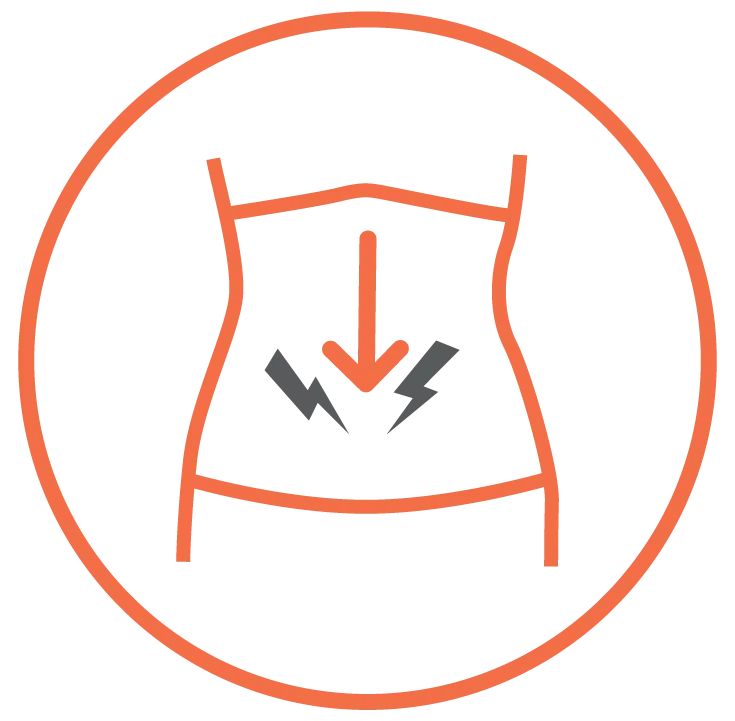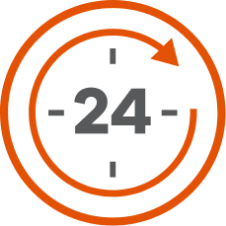

Trulance can help adults with IBS-C have MORE regular, well-formed BOWEL MOVEMENTS*


Trulance helped adults with IBS-C have LESS abdominal PAIN and BLOATING†
In clinical studies, more patients had bowel movements with Trulance vs placebo at week 12. The results were seen without the use of laxatives


Trulance can help provide relief from your chronic constipation in as little as 24 hours*
Remember that results can vary and relief can happen more quickly for some people than for others.


For continued results, take Trulance every day‡
In 12-week clinical trials, many patients taking Trulance maintained their constipation relief with continued use.
‡Or as directed by your doctor.


The American College of Gastroenterology (ACG), one of the leading organizations of gastroenterologists, has given Trulance, as part of a class of drugs, a strong recommendation to treat global IBS-C symptoms. This is based on the highest level of clinical trial data.
Talk to your doctor to learn more about the clinical data and whether Trulance is right for you.
Trulance can help adults have “normal” (smooth, soft, sausage- or snake-shaped) bowel movements
Type 1
Separate hard lumps, like nuts. Hard to pass.Type 2
Sausage-shaped but lumpy.Type 3
Like a sausage but with cracks on surface.Type 4
Like a sausage or snake, smooth & soft.Type 5
Soft blobs with clear-cut edges.Type 6
Fluffy pieces with ragged edges, a mushy stool.Type 7
Watery, no solid pieces. Entirely liquid.Adapted from Lewis SJ, Heaton KW. Stool form scale as a useful guide to intestinal transit time. Scand J Gastroenterol. 1997;32:920-924.
Identify your treatment goals with the Bristol Stool Form Scale
The Bristol Stool Form Scale is a visual representation of the 7 different types of bowel movements that you can have.
- Type 4 is considered a well-formed bowel movement—described as smooth, soft, sausage- or snake-shaped, and free of lumps or excess liquid
- Type 1 or 2 is often considered constipation, while Type 6 or 7 is often considered diarrhea
While it might seem awkward to talk about, telling your doctor which types of stool you typically have can help create a treatment plan that works for you.
Type 1
Separate hard lumps, like nuts. Hard to pass.Type 2
Sausage-shaped but lumpy.Type 3
Like a sausage but with cracks on surface.Type 4
Like a sausage or snake, smooth & soft.Type 5
Soft blobs with clear-cut edges.Type 6
Fluffy pieces with ragged edges, a mushy stool.Type 7
Watery, no solid pieces. Entirely liquid.Adapted from Lewis SJ, Heaton KW. Stool form scale as a useful guide to intestinal transit time. Scand J Gastroenterol. 1997;32:920-924.
What Is Trulance?
Trulance® (plecanatide) 3 mg tablets is a prescription medicine used in adults to treat Irritable Bowel Syndrome with Constipation (IBS-C) and Chronic Idiopathic Constipation (CIC). Chronic means the constipation is long lasting. “Idiopathic” means the cause of the constipation is unknown. It is not known if Trulance is safe and effective in children less than 18 years of age.
What is the most important information I should know about Trulance?
- Do not give Trulance to children who are less than 6 years of age. It may harm them.
- You should not give Trulance to children 6 years to less than 18 years of age. It may harm them.
- Do not take Trulance if a doctor has told you that you have a bowel blockage (intestinal obstruction).
What Is Trulance?
What is the most important information I should know about Trulance?
- Do not give Trulance to children who are less than 6 years of age. It may harm them.
- You should not give Trulance to children 6 years to less than 18 years of age. It may harm them.
- Do not take Trulance if a doctor has told you that you have a bowel blockage (intestinal obstruction).
TRU.0022.USA.25